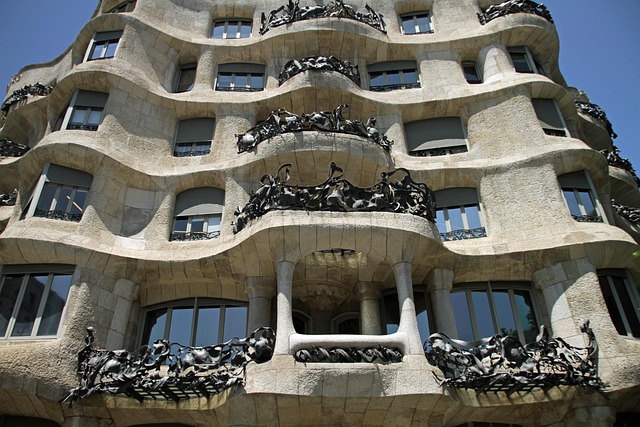Industrial parks are vital economic drivers, offering strategic real estate solutions with pre-established infrastructure that attract manufacturers and distribution centers. Clustering related industries stimulates local economies through job creation, increased tax revenues, and commercial sector growth. As engines of economic growth, these parks provide diverse real estate opportunities near transportation hubs, driving investment potential in manufacturing, logistics, and distribution sectors. Through strategic management, efficient planning, and business incentives, industrial parks maximize ROI while cultivating innovation, collaboration, and robust entrepreneurial ecosystems.
Industrial parks have emerged as powerful engines of economic growth, transforming landscapes and driving development worldwide. This article delves into the multifaceted role these specialized spaces play in fostering prosperity. From attracting businesses and creating employment opportunities to stimulating real estate investments, industrial parks are strategic hubs that maximize economic potential. We explore effective park management strategies while shedding light on the significant impact they have on regional economies, highlighting the intricate relationship between industrial development and real estate.
The Role of Industrial Parks in Economic Development

Industrial parks play a pivotal role in economic development, acting as engines of growth for regions worldwide. These specialized areas offer an array of benefits that cater to businesses and investors alike. In terms of real estate, industrial parks provide strategically located plots, often with infrastructure already in place, making them attractive for establishing manufacturing facilities or distribution centers.
The setup of these parks facilitates efficient operations by clustering related industries together. This proximity encourages collaboration, fosters innovation, and attracts talent, contributing to a vibrant business ecosystem. Moreover, the concentration of industrial activity can drive local economies by creating job opportunities, increasing tax revenues, and stimulating nearby commercial sectors, ultimately enhancing the overall economic landscape.
Real Estate Opportunities and Investments within Industrial Parks

Industrial parks have emerged as powerful drivers of economic growth, offering a wide range of real estate opportunities. The strategic location of these parks near transportation hubs and urban centers makes them attractive sites for businesses seeking to expand or establish new operations. This, in turn, drives up demand for commercial and industrial real estate within the park boundaries. Investors can capitalize on this trend by focusing on properties that cater to manufacturing, logistics, and distribution needs, ensuring long-term sustainability and profitability.
The real estate landscape within industrial parks is diverse, with options ranging from large-scale warehouse spaces to smaller units suitable for specialized industries. As businesses continue to seek efficient and cost-effective solutions, the demand for flexible and adaptable real estate only increases. This presents investors with a unique chance to invest in properties that can accommodate various tenants, fostering a dynamic and thriving business ecosystem within the park.
Strategies for Maximizing Growth Potential through Park Management

Industrial parks play a pivotal role in fostering economic growth, and strategic management is key to unlocking their full potential. Effective park management involves several approaches that can maximize growth. One crucial aspect is leveraging real estate as an asset. This includes optimizing land use by designing efficient layouts that accommodate businesses’ needs while ensuring adequate infrastructure. Zoning and spatial planning should consider future expansion and the potential for high-value development, maximizing the return on investment.
Additionally, park managers should focus on creating a conducive business environment. Attracting and retaining companies through incentives, tax benefits, and tailored support services can drive economic activity. Networking events, business incubators, and mentorship programs foster innovation and collaboration, enhancing the park’s reputation as a hub for entrepreneurship. By combining strategic real estate management with a dynamic business ecosystem, industrial parks can become powerful engines of economic growth.






